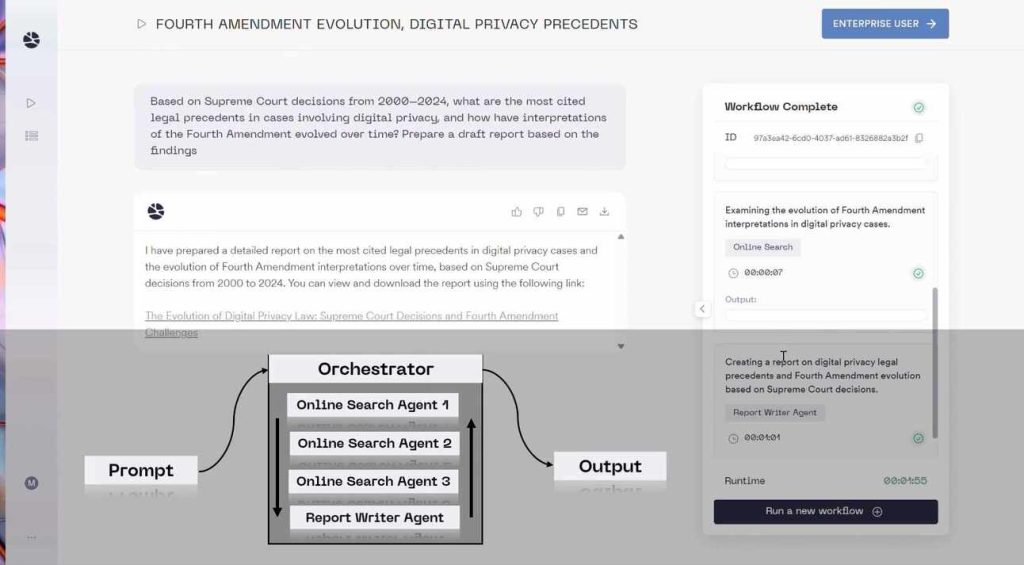Agents Building Agents: A Glimpse Into the AI Future

The world of artificial intelligence is rapidly evolving, offering new possibilities each day. We’re now witnessing AI agents that can create other AI agents, transforming workflows in profound ways.
Imagine a future where complex tasks are delegated to intelligent agents, freeing up human creativity. This isn’t sci-fi—it’s happening now. Join us as we explore how agents are building other agents and revolutionizing industries.
Meta’s Innovation in Video AI
Meta’s recent video experiment demonstrates a groundbreaking leap in AI capabilities. Their MoCha model can simulate both facial movements and speech, creating lifelike characters. This marks a significant advancement as it bridges the gap between video and audio generation.
While many AI models excel in one area, few can integrate both seamlessly as MoCha does. This experiment opens doors for creating more interactive digital avatars, enhancing virtual reality experiences, and refining communication technologies.
Such innovation not only boosts entertainment industry potential but also presents opportunities for educational tools, remote communication, and even healthcare applications. Meta’s move forward urges others to reimagine the boundaries of AI technology development.
OpenAI’s Ambitious Funding Challenges
OpenAI’s recent funding round is marked by ambitious commitments. The startup’s principal investor, SoftBank, faces the challenge of securing a massive $16.5 billion loan to fulfill its financial promise.
OpenAI’s transition towards a for-profit model by year’s end could see it receive the full $40 billion funding. Otherwise, only half will be disbursed, underscoring the high stakes involved in its growth strategy.
Meanwhile, ChatGPT has experienced a 30% spike in revenue, largely driven by GPT-4o’s novel image generation feature. This rapid revenue increase highlights the market’s growing interest in versatile AI applications.
Alibaba’s Competitive Edge with Qwen3
Alibaba is charting a new path in AI with its forthcoming model, Qwen3, promising significant performance enhancements.
The previous model, Qwen 2.5, already showcased efficiency that allowed it to operate on mobile devices. Qwen3, however, aims to surpass rivals like DeepSeek’s R1 and OpenAI’s models.
As competition intensifies, advancements like these drive innovation across the AI landscape, encouraging companies to push boundaries and redefine capabilities in artificial intelligence.
Emergence: The New Frontier in Agent Technology
Emergence, a startup from New York City, is pioneering a platform where agents can create other agents using simple text prompts.
With a substantial $200 million investment, Emergence is set to reshape how we think about AI. Its platform allows users to seamlessly build task-specific agents without needing coding skills.
The technology enables agents to evaluate and evolve independently, simulating tasks, setting goals, and learning from mistakes. This self-sufficiency marks a pivotal shift towards a future where AI handles complex tasks autonomously.
Augment Code: Revolutionizing Software Development
Augment Code is reshaping the software development landscape by streamlining complex workflows for engineers.
By installing Augment Code extensions on selected IDEs, developers can enhance their productivity with task automation and improved code management.
The tool offers features such as debugging, code documentation, and even automating tasks like testing and bug tracking, all aimed at simplifying the development process.
Augment Code, by introducing its Augment Agent feature, empowers developers to handle larger workflows efficiently, boosting overall productivity and efficiency within teams.
Advancing Productivity with AI Tools
Emerging AI tools promise to supercharge productivity across various sectors.
Dify aids in building sustainable AI applications, while WUI AI transforms lengthy videos into short, engaging clips.
Nuvi.dev simplifies the creation of AI agents directly from product specifications with no need for coding expertise, enhancing the development toolkit.
These tools, including Hotpot and Speechify, are becoming key to driving efficiency, facilitating creativity, and supporting diverse professional needs.
AI Transformations in social media trends
AI is making waves in social media, influencing trends and conversations.
Research indicates limitations in language model reasoning capabilities, sparking discussions about AI’s role in critical thinking tasks.
Creators leverage AI to innovate in media production, using tools to create dynamic content and explore new storytelling methods.
AI’s integration into social platforms is reshaping interactions, offering new ways for users to engage with content and expand their digital experiences.
The exploration of AI agents that can create other agents signifies a transformative era for technology. As these innovations unfold, they promise to redefine how tasks are managed, elevating productivity and sparking new possibilities across various fields.





